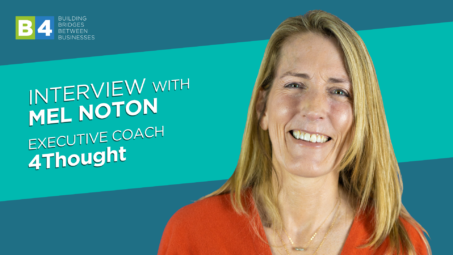
Could you be a More Successful presenter?
If people are our greatest asset, then excellent communication must be our most essential skill. So why do many of us leaders and managers take it for granted?
Alison Haill, leadership communication specialist, teaches senior managers and business owners the advanced communication skills needed for engaging staff and stakeholders in business today. In the first of three articles, she focuses here on Effective Presenting.
Written by: Alison Haill Photography by: Jackie Cross
Presenting – speaking ‘one to many’ – is an opportunity to influence others and a key leadership skill. Successful presenting results from confidence and skill as much as on content. If you want to come across as a confident effective presenter, first check this list. Are you guilty of any of these common mistakes?
5 Mistakes to Avoid
1. DON’T start your preparation by creating your slides. DO start instead by considering who is in your audience. What are their fears and concerns? How can you present your topic so it engages them?
2. DON’T write out your script and then read it aloud. You will inevitably read too fast. Reading aloud is much faster than the listening brain can digest content rich information, so reading aloud will leave your audience cold. DO hold cards with legible bullet points, which can act as prompts for you. You will communicate your information at a more natural speed.
3. DON’T memorise your script. Memorising is dangerous because something unexpected can easily cause you to forget a chunk of the script. I’ve seen this happen many times. When the speaker forgets a word or a paragraph, they go into a spiral of panic. Their brain freezes and they can’t remember what comes next.
Nerves are natural when you perform and they can stop your memory working as expected. It’s much better to keep your brain thinking about what you want to get across, rather than staying in memory mode. DO take those cards and beforehand practise using them.
4. DON’T cram slides with information. If you do, you and your slides will be competing for the audience’s attention. That probably means that neither you nor your slides will make the impact you hoped for.
When your slides have a lot of text or graphical information, your audience is reading, not listening to you. Contrary to accepted thinking, the brain doesn’t multi-task – even in women! It does one thing after another.
So instead, DO separate complex information into separate slides and make sure there is plenty of white space on each so the audience can read them quickly.
5. DON’T stand in the dark beside your slides. An animated speaker speaking with belief is far more engaging than a slide. DO stand where your face is well lit. Avoid speaking in a pitch black room.
5 Habits to Adopt
And now, here are 5 habits to adopt that will enhance your reputation as a leader and a presenter.
1. DO…Decide what your Core Message is. When you finish your presentation, your audience should be able to tell others what your message was. So, work it out before you start preparing your content. Otherwise your information can overwhelm the audience so they go away with no clear message at all. The Core Message should be a sentence not a title so make sure it has a verb. For example “We are changing our key programmes because sales have fallen over the last year and we need a fresh engaging approach.”
2. DO…Be really clear. Give the presentation a clear logical structure by grouping your information into 3 main topics or points. And speak clearly without rushing. This ensures the audience grasps your points fully and you can influence them. Grouping content into just 3 topics helps your audience remember them. And helps you do so too.
3. DO…Use signposting language like:
I ‘ll cover 3 points
First
Now to my second topic
And now my 3rd point
You may think this is too obvious but, believe me, you can’t rely on your audience being 100% attentive. These days everyone has a multitude of things on their minds so clear “signposts” makes sure they stay with you – or can come back, if they drift off.
Another reason is that there may well be foreign nationals in your audience. Signposting phrases are helpful because it is easy to get lost when listening to a presentation in English when it is not your mother tongue.
4. DO…start with an attention grabber not your name. Don’t disappoint your audience by starting with housekeeping information, your name, or other unexciting information. You may find your bio fascinating but your audience may not feel the same! Start with something that really grabs their attention. Then when you’ve made an impact, you can tell them who you are and why they should listen to you.
5. DO…end with a call to action so the audience knows what you expect them to do next. Your last message will be remembered so make it something action oriented. It doesn’t need to be an energetic action. Words like “think”, “consider” or “make sure” work just as well as “create”, “start” or “grab”.
“Think about the contribution YOU can make!” is much more memorable than “Thank you for listening”. Just make sure your Call To Action is relevant to your audience and to what you have been presenting.
More in Coaching

Interview with Mel Noton of 4Thought: Pushing Boundaries & Delving Deeper
Mel Noton is an Executive Coach who has a passion for extracting the full potential of her clients which include CEO’s, senior leaders, executives or leadership teams. Mel is a specialist in managing challenging, emotionally straining and draining work conflicts and situations to successful outcomes.

RoSPA and L’Oréal’s ‘Leading Safely’ programme gains huge momentum
RoSPA and L’Oréal’s Leading Safely for Women programme, part of their Safe@Work-Safe@Home partnership, which launched earlier this year has had a ‘phenomenal response’, according to Dr Karen McDonnell, RoSPA’s health and safety policy adviser.

Charge what you’re worth and get it
Join Alison Haill for the first episode of the Alison Haill podcast “Charge What You’re Worth And Get It”.
From this author

Budget 2024: Clarity will prompt busy prime market in Oxfordshire this...
It’s been a year of uncertainty for individuals invested in prime property markets across the UK.

From Struggle To Success
Oxford Professional Consulting is Oxford’s premier consultancy for Executive Business Coaching and Leadership Communication. Led by Alison Haill, Principal Consultant and Founder, who hand-picks associates to suit individual contracts. The company has clients in the UK and abroad.

Charge what you’re worth and get it
Join Alison Haill for the first episode of the Alison Haill podcast “Charge What You’re Worth And Get It”.

